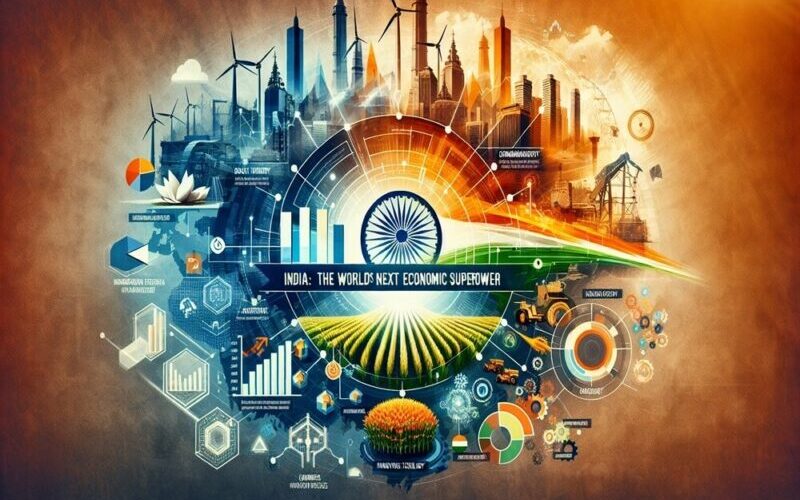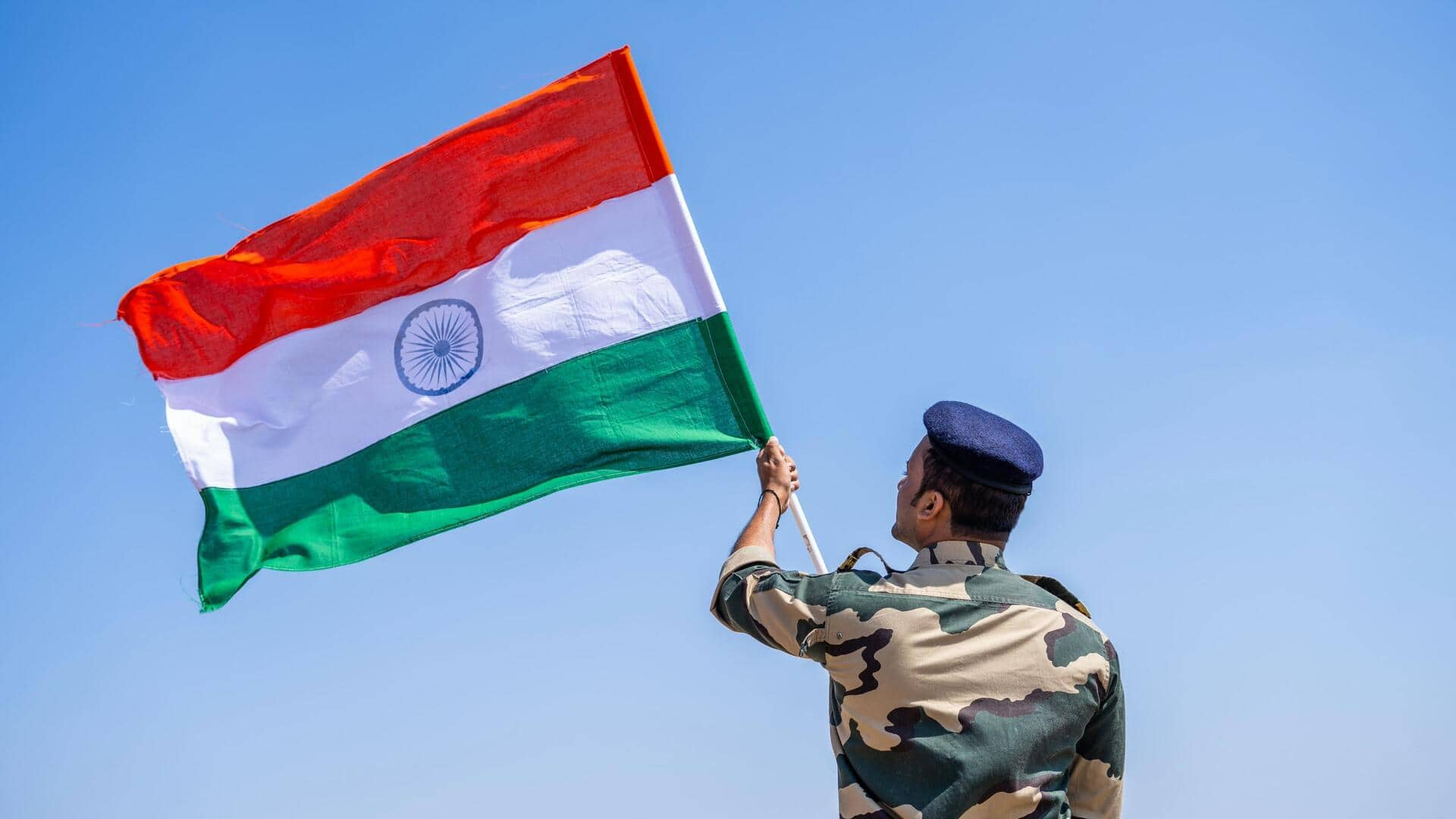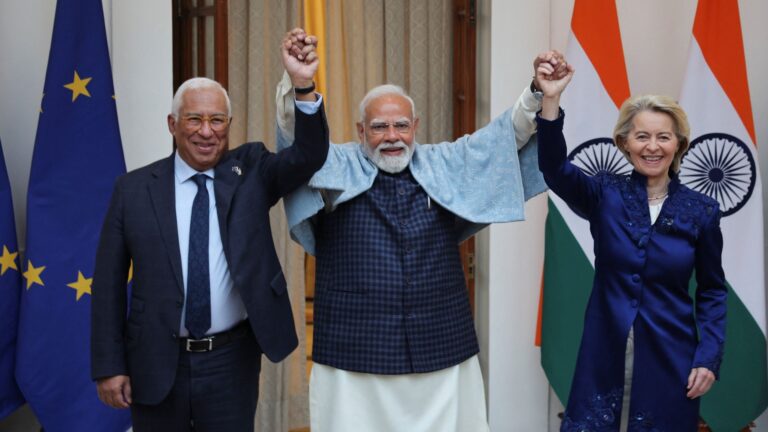
For decades, India was often described as a “sleeping giant,” a vast nation with latent potential but limited impact on the world stage. Today, that characterization is outdated. India is no longer merely awakening. It is asserting itself as a decisive actor whose choices have a ripple effect across continents. In the complex theatre of twenty-first century geopolitics, India is the elephant in the room: large, strategic, and impossible to ignore.
India’s increasing significance and pivotal role in international affairs are both visible and consequential. Recent world events underscore the country’s strategic flexibility and influence in today’s geopolitical landscape. India’s sheer scale, potential, and influence cannot be ignored, even as powers around it sometimes attempt to sidestep or minimize its impacts.
India’s Rising Economic Powerhouse
India is now the world’s fifth-largest and one of the fastest-growing major economies. Its demographic dividend of over 1.4 billion people, with a median age of just 28, fuels a dynamic workforce and a burgeoning consumer base. This economic weight underpins India’s ability to set global trends in technology, digital finance, pharmaceuticals, and renewable energy. Multinational firms increasingly view India as a manufacturing hub and a source of innovation, from space-tech start-ups to cutting-edge software solutions.
India’s rapid economic growth continues to surprise observers: GDP growth in FY2025 reached 7.4%, a remarkable feat given the global headwinds. Far-reaching reforms in labor, digital governance, and infrastructure have helped establish domestic resilience.
India has demonstrated an exceptional ability to mobilize vast digital infrastructure. Through its Digital Public Infrastructure initiative, India is changing the landscape for service delivery, e-commerce, and innovation. The country is pushing for fair trade systems and pragmatic climate commitments. Indian diplomacy increasingly promotes the priorities of the Global South, influencing multilateral discussions on equitable development and resource distribution.
India’s foreign policy strikes a balance between pragmatism and ambition. It maintains robust defense ties with the United States, Japan, and Australia through the Quad, while preserving historic partnerships with Russia for energy and military hardware. Simultaneously, New Delhi engages with the Global South through forums such as BRICS and the G-20, where its 2023 presidency highlighted climate finance and debt relief for developing nations.
The country continues to amplify its influence by refusing to be boxed into any single bloc and often plays the indispensable mediator in global crises.
Security and Regional Influence

India’s military power is rising. It has fought terrorism at home and made significant investments in defense. “Make in India” policies have multiplied defense exports, bolstering self-reliance. India now supplies major defense platforms to partners in Asia and Africa. The country’s navy also leads exercises and humanitarian missions in the Indo-Pacific.
Technology and innovation are also major strengths. India ranks high on the Global Innovation Index and aspires to lead the world as an AI hub. This digital transformation also supports public health, education, and financial inclusion. India’s strong growth fuels optimism at home and abroad. Surveys have recently ranked India as the third most optimistic nation in the world, symbolizing confidence in its future.
India has taken global leadership in climate action. Its Mission LiFE campaign and Solar Alliance are recognized worldwide. India advocates for green finance and helps other developing nations with climate adaptation. During the COVID-19 crisis, India sent vaccine support to 99 countries. These moves enhance its image as a trusted and responsible global actor.
Challenges that Shape India’s Global Role
India’s ascent is not without friction. Domestic concerns such as infrastructure gaps, socioeconomic inequality, and debates over democratic freedoms affect its soft-power narrative. Border tensions with China and periodic unrest in neighboring regions demand constant diplomatic agility.
India must contend with numerous challenges, including social inequalities, job creation, environmental sustainability, security dilemmas, and pressure from divided trade blocs. Yet, India’s ability to navigate these challenges without retreating from global engagement reinforces its image as a resilient and indispensable actor. Its institutional reforms, persistent innovation, and consensus-building capacity have made it a fulcrum upon which international solutions often rest.
Whether in trade talks, climate negotiations, digital governance, or security alliances, India’s presence is felt even when it remains understated. Global strategies on supply chains, health security, and emerging technologies increasingly require India’s participation for success. As policymakers from Washington to Brussels to Nairobi recalibrate their approaches, they recognize that no durable solution, whether it be on climate, security, or economic growth, can bypass New Delhi.
The metaphor of the “elephant in the room” captures more than India’s size; it underscores a reality the world can no longer sidestep. India’s strategic autonomy, economic dynamism, and willingness to shape global norms are central to the world’s future. Engaging with India is not optional — it is essential for any nation seeking stability and progress in the decades ahead.
For more such articles, check out the World Times.




India truly is the elephant in the room, isnt it? With its booming economy and tech prowess, its not just participating in global discussions; its subtly becoming the fulcrum they pivot around, even if India prefers not to be boxed in. From setting trends in digital finance to quietly providing vaccine support, India’s global leadership is as noticeable as a well-placed elephant at a tea party. It’s impressive how New Delhi balances partnerships with the US, Russia, and the Global South, all while maintaining its strategic autonomy – like the guest who knows everyone but isnt part of any single conversation. The world better start getting comfortable, because engaging with this optimistic, resilient giant isnt optional, no matter how much some might wish it were. India’s just too big to hide behind the sofa!watermark ai